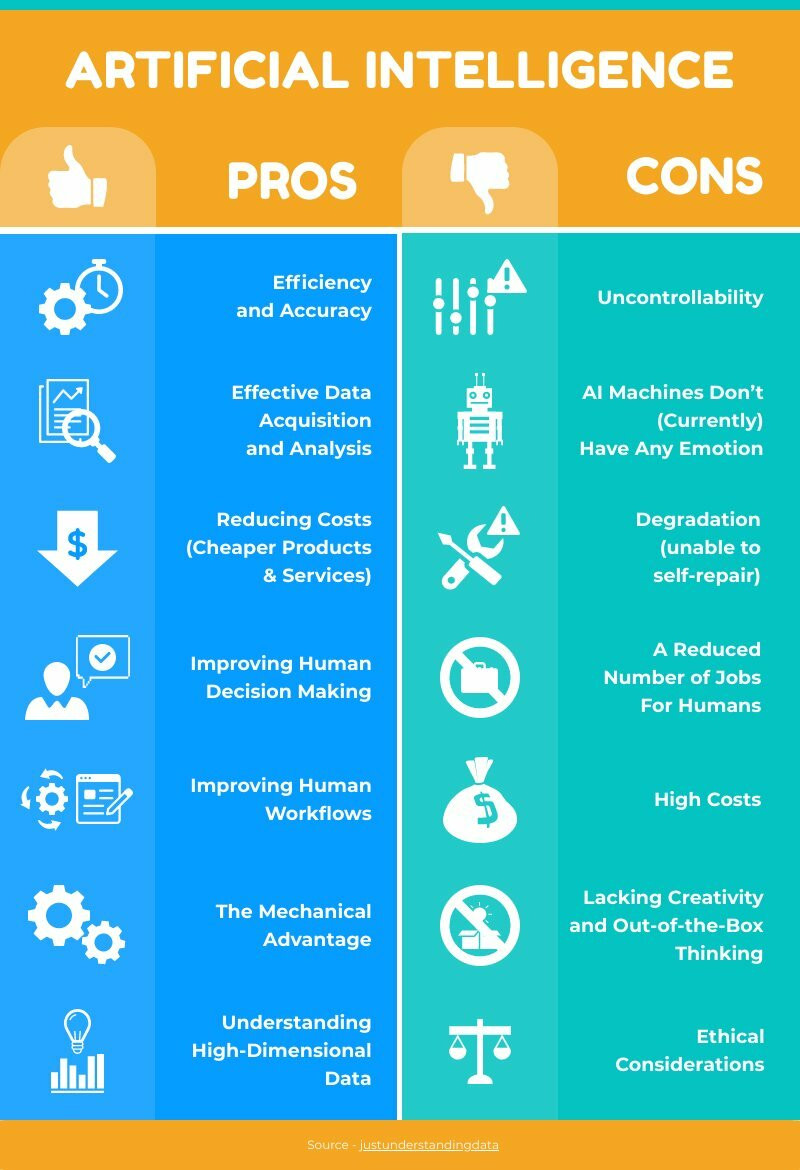
Artificial Intelligence (AI) comes with various pros and cons, and its impact depends on how it is developed, deployed, and managed. Here are some general pros and cons associated with AI:
**Pros of AI:**
1. **Automation:** AI can automate repetitive tasks, leading to increased efficiency and productivity in various industries.
2. **Accuracy:** AI systems can process large amounts of data quickly and with high precision, reducing the margin of error in tasks.
3. **24/7 Operation:** AI systems can work continuously without the need for breaks, providing round-the-clock service.
4. **Cost Savings:** In the long run, AI can lead to cost savings by automating tasks, reducing labor costs, and improving overall efficiency.
5. **Decision Support:** AI can analyze vast datasets to provide valuable insights, helping in decision-making processes.
6. **Innovation:** AI is a catalyst for innovation, enabling the development of new technologies and applications that can address complex challenges.
7. **Personalization:** AI algorithms can be used to customize user experiences, such as in personalized recommendations in online platforms.
**Cons of AI:**
1. **Job Displacement:** Automation through AI may lead to job displacement, particularly for tasks that can be easily automated, which can contribute to unemployment.
2. **Bias and Fairness:** AI systems can inherit biases present in training data, leading to unfair and discriminatory outcomes, especially in areas like hiring or law enforcement.
3. **Lack of Creativity and Intuition:** AI lacks the ability to think creatively or use intuition, limiting its problem-solving capabilities in certain domains.
4. **Security Concerns:** AI systems can be vulnerable to attacks and may pose security risks, especially when used in critical infrastructure or sensitive applications.
5. **Ethical Concerns:** The development and deployment of AI raise ethical questions, such as privacy issues, accountability, and the potential misuse of advanced technologies.
6. **Dependency:** Overreliance on AI systems can lead to a loss of human skills and critical thinking, making society more dependent on technology.
7. **Complexity and Understandability:** Advanced AI models, such as deep neural networks, can be complex and challenging to interpret, making it difficult to understand the reasoning behind their decisions.
It’s important to note that ongoing research and ethical considerations are crucial in shaping the future development and use of AI to maximize its benefits while minimizing its drawbacks.